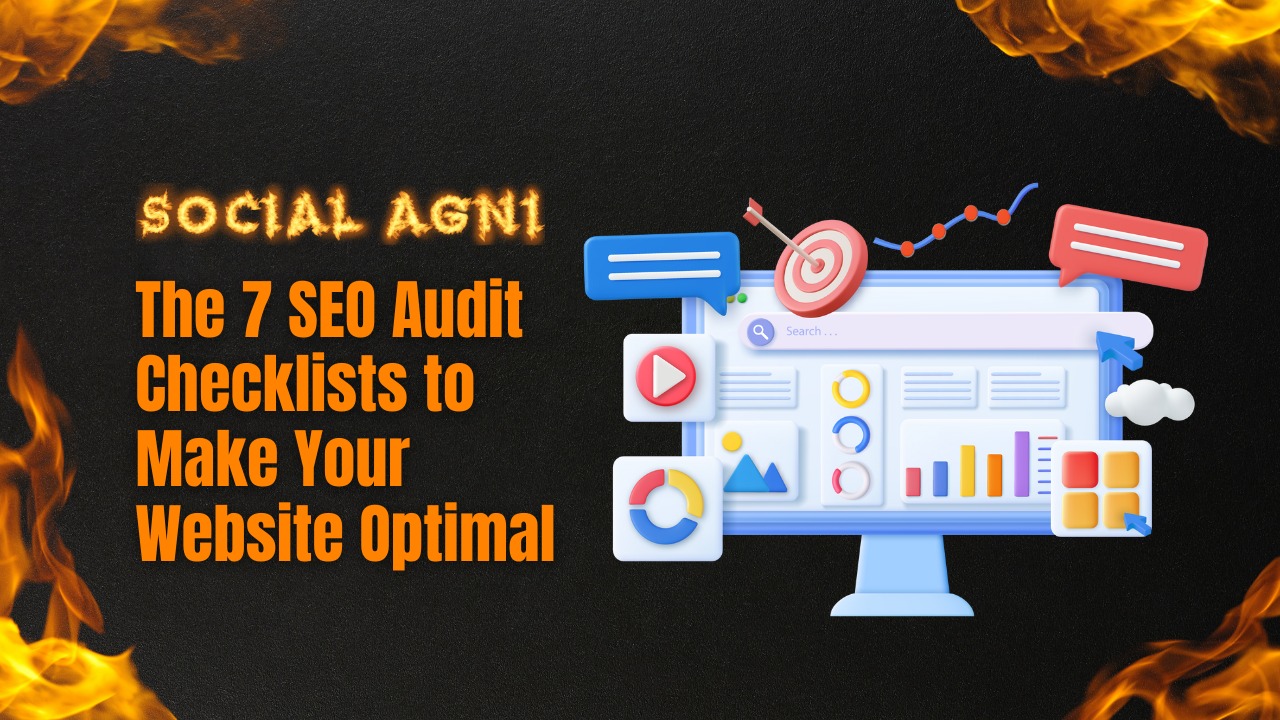Today, companies and people need well-optimized websites. Standing out online demands strategy. SEO helps here. SEO improves a website’s visibility and SERP ranks. SEO audits are routinely neglected. An SEO audit analyzes your website’s performance, structure, and content to find opportunities for improvement. It guides website optimization, search engine ranking, and organic traffic. Why is SEO auditing crucial? Google updates its algorithms to provide people with the best results. Regular SEO audits are necessary to stay current and visible to your target audience. SEO audits reveal your website’s health and performance concerns. This procedure analyzes your website’s technical, on-page, content, and backlink profiles. SEO audits improve website exposure and more. It also improves the user experience, identifies and fixes technical faults, optimizes your website’s structure and content, and increases the quality of visitors. An SEO audit also helps you outperform the competition. You can adjust to the ever-changing search landscape and stay competitive in search engine rankings by regularly reviewing and tweaking your website. This post covers seven SEO audit checklists to optimize your website. We’ll analyze each checklist and offer SEO advice. If you’re a business owner, marketer, or website owner, optimize your website for search engines to boost your online visibility. Jump in! Understanding the Importance of SEO Audit Maintaining a competitive advantage in the realm of search engine optimization (SEO) requires staying on top of developments. An SEO audit is a methodical assessment of the SEO components on your website to determine their present condition and find areas for improvement. This is the reason why performing an SEO audit is crucial: Discover Opportunities for Optimization: An SEO audit enables you to locate potential areas for optimizing your website. You may find possibilities to improve your website’s performance by examining numerous components, such as on-page SEO considerations, technical SEO elements, and content quality. This might entail increasing keyword targeting, site performance, broken links, or meta-tag optimization. Boost Search Engine Rankings: To assess the value and relevancy of webpages, search engines utilize sophisticated algorithms. You may make sure your website complies with these algorithms’ standards by performing an SEO audit. Improved search engine rankings, better user discovery, and an increase in organic traffic can all result from optimizing your website in light of the audit’s results. Improve User Experience: User experience (UX) is important for SEO. Search engine results favor websites that offer a smooth and user-friendly experience. You may assess your website’s navigation, page load speeds, and mobile compatibility with the use of an SEO audit. By improving these aspects, you may create a favorable user experience that may result in more conversions, longer visitations, and reduced bounce rates. Maintain Your Competitive Edge: There is a lot of rivalry online. To gain an edge, your competitors are always improving their websites. You can remain on top of market trends, spot the tactics utilized by your rivals, and put improvements into place to match or outrank them by regularly doing SEO audits. An audit provides insights into areas where you can surpass them and helps you understand how your website compares to others in your niche. Adapt to Algorithm Updates: To deliver more precise and pertinent search results, search engine algorithms are often updated. The exposure and rankings of your website may be greatly impacted by these adjustments. Regular SEO audits enable you to quickly adjust to algorithm changes. You can make sure your site is optimized and retains its ranks despite algorithm modifications by keeping an eye on its performance and making the appropriate improvements. Keyword Research and Analysis An SEO audit must include both keyword research and analysis as essential elements. Optimizing your website’s visibility in search engine results requires that you have a thorough understanding of the terms that your target audience uses to look for pertinent material. Here are some tips for conducting keyword research and analysis efficiently: Finding Relevant Keywords: Begin by making a list of prospective keywords that relate to the content of your website. Take into account the goods or services you provide, terminology unique to your sector, and keywords that members of your target market are likely to use. Consider what your audience would enter into a search engine if you were speaking to them. Use Keyword Research Tools: To improve and hone your list of keywords, make use of keyword research tools. Search volume, keyword competition, and related keyword information may be found using tools like Google Keyword Planner, SEMrush, or Moz’s Keyword Explorer. They may assist you in coming up with new keyword suggestions and helping you rank keywords according to their prospective importance. Analyze Keyword Competition: Determine the degree of competition for each keyword by analyzing the keyword market. Ranking for highly competitive keywords can be difficult, especially if your website is in its infancy or lacks authority. To find keyword possibilities that you can realistically target and rank for, look for a mix between high search volume and moderate competition. Long-Tail Keywords: Take into account including long-tail keywords in your plan. Although there are fewer searches for these lengthier, more precise keyword phrases, they frequently reflect stronger user intent and conversion potential. You may target a more specialized audience and attract relevant traffic that is more likely to convert by using long-tail keywords. Analyze Keyword Relevance: Assess the appropriateness of the keywords for the material on your website. Make sure the keywords you use are relevant to the subjects, goods, or services you provide. Use keywords that appropriately describe the content of your website and the resources consumers may discover there. Relevance is essential for attracting targeted visitors to your website. Optimize On-Page Elements: Once you have a list of relevant keywords, optimize the on-page aspects of your website accordingly. Use keywords intelligently throughout the text, including headers, meta descriptions, and page names. Make sure, nevertheless, that your keyword usage is natural and does not detract from the content’s quality or readability. Avoid cramming your content with keywords because it will hurt your website’s ranks. Monitor
